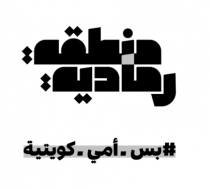Gray Area Favorite
Being a Kuwaiti citizen makes you feel like you belong to Kuwait, as nationality is a legal relationship between a person and a state. But what if you are a “halfie” and are finding it hard to answer the question “Where are you from?” Those whose fathers are Kuwaiti are automatically considered Kuwaitis but those whose moms are Kuwaiti and fathers are not, they are not granted the nationality, even if they are born here. They are considered ‘half’ Kuwaiti unlike those whose fathers are local.
Are these so called half-Kuwaitis – from the mother’s side – okay with being a “halfie” or do they have problems in feeling a sense of belonging to Kuwait?
Despite having been born in Kuwait and living and studying here, children whose moms are Kuwaiti and fathers are not continue to suffer from laws that refuse to equate them with their fellow citizens. Kuwait Times spoke to the “Grey Area” team, a group focused on shedding light on the grey area where children of Kuwaiti women reside.
The team of ‘Grey Area’ asked to remain anonymous. One of them spoke about the idea behind the campaign. “My mother is Kuwaiti but my father is not. I realized most of the community is not aware of how half-Kuwaitis suffer to fit in. I’m in a grey area where I cannot feel that I belong to any of the two nationalities,” she said.
The campaign started a year ago, and its Instagram account has received many stories from half-Kuwaitis. “The reason for the campaign’s name is that we are not fully Kuwaiti and not fully foreign. When you are under the age of 21, you will be treated as a Kuwaiti in education and are allowed to study in public schools, but after graduation, you’re a foreigner in terms of the difficulty of getting a job and the difference in wages with those of Kuwaitis, etc,” she told Kuwait Times.
The four members explained the suffering faced by children of Kuwaiti women married to non-Kuwaiti husbands. “When we decided to work on the campaign, we wanted to attract young people of the same age group. We wanted to focus on the children themselves and give them the ability to express themselves. At first, we faced some negative comments such as ‘women do not have the right to grant citizenship to their children’ and ‘since they chose to marry non-Kuwaitis, they should bear the consequences of their actions’, but our followers always defend us,” they said.
The team has many goals it aspires to achieve, most important of which is acceptance of society that they are different, provide support to children of Kuwaiti women, change some laws that concern Kuwaiti children and clarify their role in society. Statistics by the Public Authority for Civil Information show that the number of Kuwaiti women married to non-Kuwaitis reached 19,383 as of mid-2018, and the total number of children of non-Kuwaiti husbands number around 62,000.
The citizenship law allows a Kuwaiti citizen married to a non-Kuwaiti woman to grant his children Kuwaiti nationality, but does not allow a Kuwaiti woman to pass on her nationality to her husband or children. The state treats children of a Kuwaiti woman until the age of 18 as Kuwaiti citizens who have the right to free study at all levels of education. But after that, they are required to obtain a work contract that allows them to stay in the country or are at risk of being deported to their fathers’ countries for violating the residency law. In the event of the death of a Kuwaiti mother, the government prohibits her children from owning her property if it is granted by the state, unlike the children of Kuwaiti fathers.






